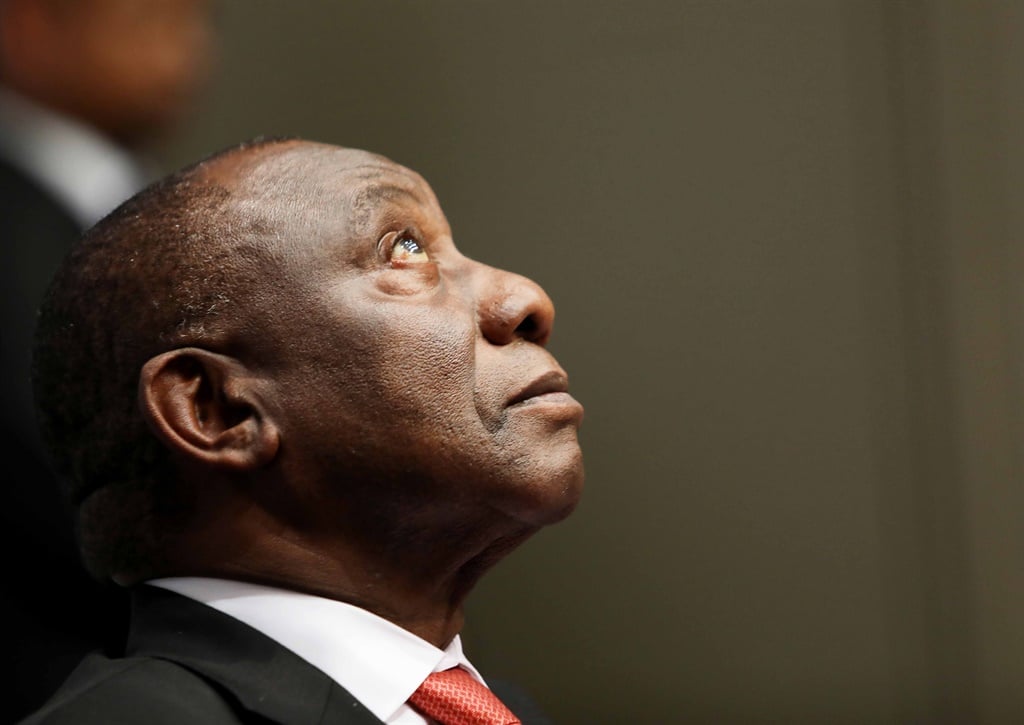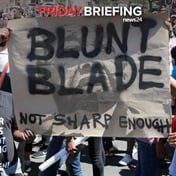
There is increased frustration, exasperation and disappointment in the circles around President Cyril Ramaphosa.
Among some who have staked their careers and political reputations on his victory at Nasrec, premised on repairing the destruction of the Zuma years and on a return to ANC values of non-racialism and a higher calling, many have started giving up on Ramaphosa taking bold decisions.
And among those in government, including at National Treasury, the department responsible for Wednesday's Medium-Term Budget Policy Statement, there is a desperation to force the president to start making those politically unpopular decisions which are in the interest of all South Africans.
For them, Ramaphosa has now become the problem.
OPINION | Mpumelelo Mkhabela: There's hope for Mboweni's struggling aloe if all ministers show up
Treasury, as it has done without fail during the gluttonous years of the Zuma governments, was searingly honest about the country's fiscal position, why we are here and what needs to be done to get us out of the hole.
Both Treasury and Mboweni acknowledged that things are now "significantly" worse than in February, when he tabled his first budget. And our position has become worse because government has failed to act on the warning about Eskom and the unsustainable public sector wage bill.
Those warnings, starkly emphasised in February, were also issued in October last year, and in February, and the budget cycle before that.
But every time Treasury warned government that its spending patterns are incongruent with its revenue streams, politics intervened.
If it wasn't Nhanhla Nene being replaced as finance minister by Des van Rooyen, it was Pravin Gordhan being harassed by Berning Ntlemeza and the Hawks. And if the whole country wasn't put on hold so that Ramaphosa and Nkosazana Dlamini-Zuma could slug it out over the remains of the ANC before its national conference, it was the governing party pausing everything so that it could campaign for an election.
And when Ramaphosa managed to elbow former president Jacob Zuma out of the corrupted office of the Presidency, his advisers said he will use the year ahead of the election to stabilise the political environment – and then he'll start to implement change.
With some minor exceptions, there have been no far-reaching or radical interventions, including and especially with the two biggest threats to our fiscal stability and sovereignty: Eskom and the public sector. Not to mention all the other myriad areas in government, state and society that were neglected and debased under Zuma.
Ramaphosa, as those who know him well attest to, believes in consensus and incrementalism. He is a negotiator who wants everyone to leave the table feeling that they've won something.
But the grim reality of where this country is currently means that strong, decisive and determined political leadership is not only necessary but non-negotiable. South Africa will not emerge from the low-growth, high unemployment and inefficient economy without this government, and Ramaphosa, making politically unpopular decisions.
Already Mboweni's efforts since he was appointed last year – talking about the need for government reforms, privatisation and liberalisation – have been stifled and almost muzzled.
He again on Wednesday spoke of selling government assets (he didn't want to say which ones), closing down SA Express (seemingly as a prelude to the real thing) and giving the private sector access to public goods. ("Who said only the state should own and operate harbours?")
The reaction to Mboweni and Treasury's exhortations about "difficult decisions" that have to be taken has been predictable as it has been swift. Public sector unions will "shut down" the country, destroy Eskom and call a countrywide strike if anyone so much as touches wage hikes at inflation plus 2%.
The situation is untenable.
Treasury tells us that out of every R1 000 it spends on goods and services, it spends R340 on public sector wages. And out of every R100 in tax that SARS earns for the state, R46 is paid to civil servants. The country cannot afford this.
In March this year Eskom had debt on its books in excess of R440bn. It is has received further cash injections since and will require further assistance from the state going forward. Total debt for the country's 10 biggest state-owned companies have ballooned by 177% over the last eight years: from R277bn in 2009-'10 to R738bn this year.
Go and read page 23 of the budget policy book produced by Treasury. It's scary reading. In the past government looked at expenditure on goods and services and capital budgets, which – according to Treasury – includes schoolbooks, medical supplies, new schools and new hospitals, to make cuts.
"The space to reduce these budgets further is shrinking," Treasury says.
Debt is increasing, the deficit is growing, Eskom is in a holding pattern and growth has all but flat lined. And Moody's Investor Services, the last ratings agency still well-disposed to us, is circling.
Ramaphosa has no choice but to enable and protect his two key lieutenants, Mboweni and Public Enterprises Minister Pravin Gordhan, so that they can get on with the job and do what needs to be done. He must call his party to order, stare down the unions and urgently enact reforms and measures to reduce debt, ensure growth and create employment.
He hasn't shown decisive, determined and visible leadership yet. Maybe this will jolt him into action. But maybe not.




 Publications
Publications
 Partners
Partners























